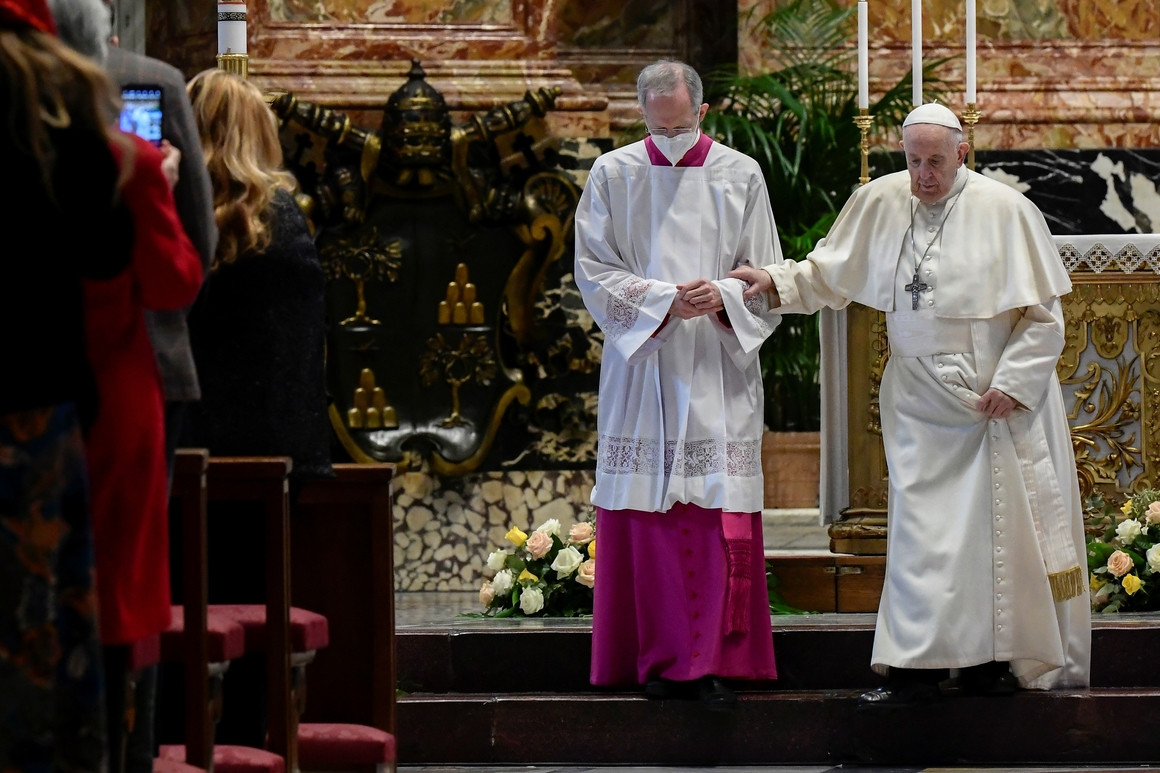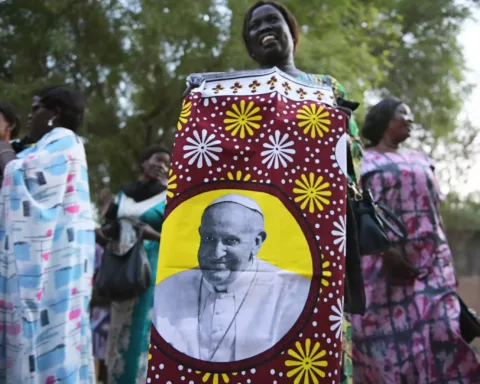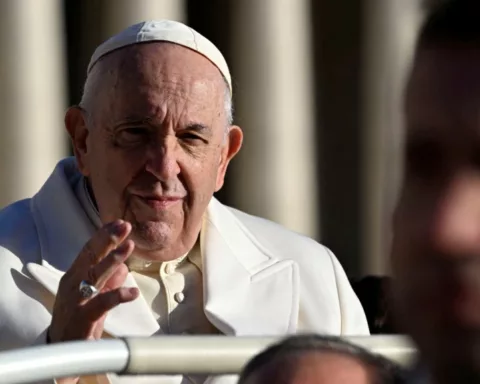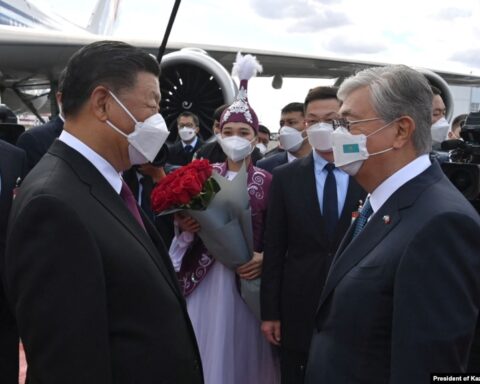From Protestant churches in South Korea to St. Peter’s Basilica at the Vatican, worshippers followed national or local regulations aimed at preventing the transmission of the coronavirus.
At a hospital in the Lombardy region of Italy, where the pandemic first erupted in the West in February 2020, a hospital gave a traditional dove-shaped Easter cake symbolizing peace to each person who lined up to receive a Covid-19 vaccine. Many of the ones who came were in their 80s and accompanied by adult children.
In Jerusalem, air travel restrictions and quarantine regulations prevented foreign pilgrims from flocking to religious sites during Holy Week, which culminates in Easter celebrations.
Inside St. Peter’s Basilica, Pope Francis sprinkled incense near an icon of Jesus and said, “May the joy of Easter extend to the whole world.”
The 200 or so faithful who were allowed to attend looked lost in the cavernous cathedral. Normally, thousands would attend the popular service and a crowd would gather outside in St. Peter’s Square, with more than 100,000 sometimes assembling to receive the pope’s special Easter blessing after Mass.
Pope Francis condemned “scandalous” armed conflicts around the world, naming Myanmar and Tigray among other areas, during his Easter Sunday mass.
Francis led the service in St. Peter’s Basilica, in a scaled-back event due to Covid-19 precautions.
He also called for vaccines to be shared with the world’s poorest countries.
“The pandemic is still spreading, while the social and economic crisis remains severe, especially for the poor. Nonetheless — and this is scandalous — armed conflicts have not ended and military arsenals are being strengthened,” the Pope said.
“May the efforts to resolve conflicts peacefully continue, in respect for human rights and the sacredness of life, through fraternal and constructive dialogue in a spirit of reconciliation and true solidarity,” he added.
“May the power of the risen Lord sustain the peoples of Africa who see their future compromised by internal violence and international terrorism, especially in the Sahel and Nigeria, as well as in Tigray and the Cabo Delgado region.”
He also addressed younger followers, “especially to the young people of Myanmar committed to supporting democracy and making their voices heard peacefully, in the knowledge that hatred can be dispelled only by love.”
The spiritual leader of the world’s 1.3 billion Roman Catholics made multiple references to the pandemic as he spoke but ultimately focused on a message of hope.
“The risen Christ is hope for all who continue to suffer from the pandemic, both the sick and those who have lost a loved one,” he said.
Francis also called vaccines an “an essential tool” in the fight against Covid-19. Concern about vaccine nationalism has been mounting worldwide in recent weeks.
“I urge the entire international community, in a spirit of global responsibility, to commit to overcoming delays in the distribution of vaccines and to facilitate their distribution, especially in the poorest countries,” Francis said Sunday.
In Jerusalem, the Easter service at the Church of the Holy Sepulcher was celebrated by Latin Patriarch Pierbattista, the senior Roman Catholic cleric in the Holy Land. The site in Jerusalem’s Old City is where many Christians believe Jesus was crucified, buried and rose from the dead.
Israel has launched one of the world’s most successful vaccination campaigns, allowing the country to reopen restaurants, hotels and religious sites. Israel captured the Old City, home to holy sites of the three Abrahamic religions, in a 1967 war.
In South Korea, Yoido Full Gospel Church, the biggest Protestant church in the country, allowed only about 2,000 church members to attend Easter service, or about 17% of the capacity of church’s main building. Masked church members sang hymns, clapped hands and prayed as the service was broadcast online and by Christian TV channels.
Seoul’s Myeongdong Catholic Cathedral, the biggest Catholic church in South Korea, limited Mass attendance to 20% capacity and livestreamed the Easter service on YouTube.
In Italy’s southern region of Puglia, the governor and many mayors urged the faithful to stay home and watch Mass on TV. The region is one of many in Italy under the most severe ’’red-zone″ restrictions due to the Covid-19 infection rate.
Attending a Saturday night Easter Vigil Mass is a popular practice for many in Italy. But with the nation under a 10 p.m. to 5 a.m. curfew, churches moved up the traditional starting times by a couple of hours. Church bells in Italy summoned people to services unusually early, tolling before sunset in some places.
A similar scenario played out in France, which is reeling from a frightful uptick in Covid-19 cases that are overtaking already strained hospitals. Some French churches held their traditional midnight Easter services just before dawn Sunday instead of on Saturday night because of a nationwide 7 p.m. to 6 a.m. curfew.
This year, Francis delivered the blessing from the altar of the basilica to prevent worshipers crowding into the piazza.
At an Easter vigil on Saturday, Francis said he hoped the dark times of the pandemic would end and that people could rediscover “the grace of everyday life.”
And on Good Friday he hugged and greeted children who attended a special Stations of the Cross ceremony at the Vatican.
The Pope’s travel has been heavily restricted due to the pandemic but he did travel to Iraq last month, for the first ever papal visit to the country.
Saturday’s service began two hours earlier than usual so participants could return home before Rome’s 10 p.m. curfew.






